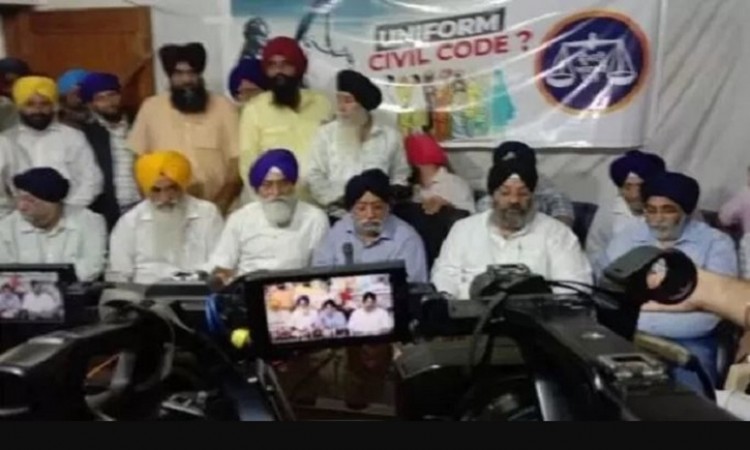
NEW DELHI: In a bid to foster unity and resolve differences on the subject of the Uniform Civil Code (UCC), a significant Sikh congregation has been summoned by the Delhi Sikh Gurdwara Prabandhak Committee. Sikhs from all corners of the nation have been warmly invited to partake in this event taking place today, on the 7th of July. The primary objective of this gathering is to engage in thoughtful discussions, shedding light on the potential ramifications of implementing the UCC as a legal statute.
During this momentous gathering, the Delhi Sikh Gurdwara Prabandhak Committee intends to emphasize its unwavering stance on religious practices, unequivocally stating their disapproval of any alterations. Furthermore, they aim to delve into the question of whether individuals who are currently barred from worshiping in temples will be granted the right to do so under the UCC.
The re-emergence of the Uniform Civil Code in public discourse can be attributed to Prime Minister Narendra Modi's impassioned plea for its implementation. Addressing a public rally in Bhopal, Madhya Pradesh, PM Modi stressed that the Constitution of India advocates equal rights for all citizens, thereby prompting contemplation on the necessity of a singular legal framework.
PM Modi posed a thought-provoking question, drawing a parallel between a home and the country itself. He questioned the viability of having distinct laws for different members within a household and pondered whether such a dichotomous system could effectively function. Reminding the audience that the Indian Constitution explicitly guarantees equal rights for all, PM Modi highlighted the imperative of a unified approach.
PM Modi also criticized the opposition, accusing them of deceiving the populace. He asserted that their rhetoric predominantly revolves around religious identity, insinuating that their professed concern for Muslims is incongruent with the reality of the educational and employment disparities experienced by Muslim families.
AI-MPLB Virtual Meeting to Discuss Uniform Civil Code